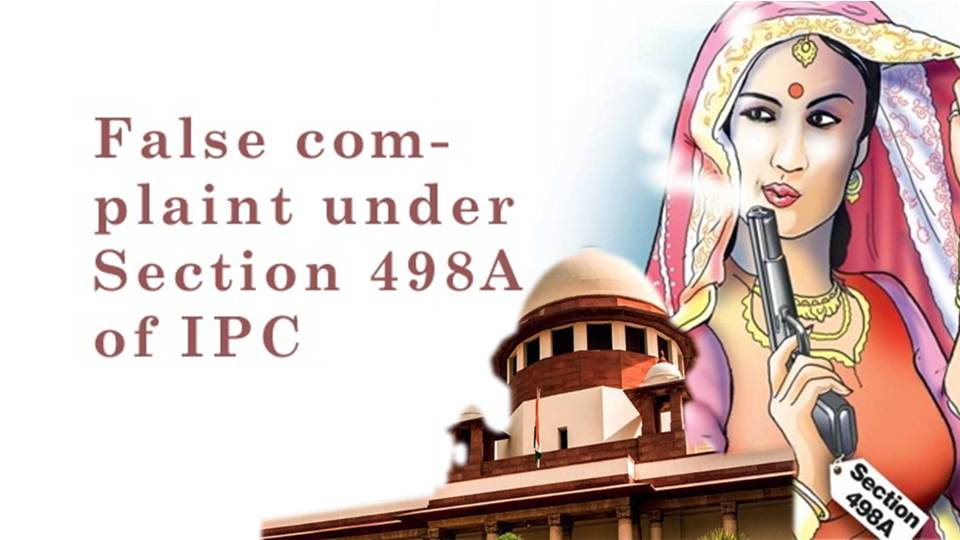Sushil Kumar Sharma vs Union Of India: If you turn the pages of local dailies, there is no dearth of dowry-related crimes happening in that area. Due to varied reasons, we rarely keep track of investigations and court proceedings in such cases. Due diligence will reveal that fake dowry cases are becoming epidemic in modern society. Somehow, it took the Supreme Court 22 years to acknowledge it.
Genesis of 498A and reasons for its misuse
In criminal law, the 1970s are not particularly understood as the era of emergencies. Instead, it was the decade in which rampant reports of dowry-related killings became the norm. Resultantly, the government introduced the Criminal Law (Second Amendment) Act, 1983. Under the act, Section 498A was added to the Indian Penal Code.
The said section criminalises a husband and any of his relatives for unleashing cruelty on a woman. In the explanation, cruelty was defined as driving a woman towards suicide or coercing her or any of her relatives to handle resources.
To assist women in every way possible, the Evidence Act was also amended by adding Section 113A. Under 113A, if a woman commits suicide within 7 years of her marriage, it will be assumed that the husband’s side of the family forced her to commit suicide. The only criteria to punish husband is that the woman had been subjected to cruelty at any time during those seven years.
Later, it became a common trend in these cases that the burden of proof of innocence lies with the husband. The practise is in accordance with the Dowry Provision Act. To make matters worse, under 498A, police can arrest without a warrant. Also, it is non- bailable. Basically, there is absolute power available to the wife.
Absolute power corrupts absolutely, and so the misuse of 498A started to take place. The Delhi High Court and Andhra High Court documented its misuse in the Savitri Devi and Saritha Case. In fact, the Andhra High Court asked the centre to make it a bailable and non-cognizable offense.
Also read: Equality: Muslim Personal Law not excluded from the ambit of POCSO
The Case that gave respite to husband
Despite these developments, it took a writ petition for the Honorable Supreme Court to identify it. In Sushil Kumar Sharma vs Union of India and Ors., the petitioner requested the Supreme Court to declare 498A as unconstitutional. They also asked to formulate guidelines in order to protect innocent husbands and their relatives. Citing several instances of misuse, they asked the court to punish the false accusers. In Sushil’s words, “there is no prosecution in these cases but persecution “in these cases.
The Court, however, refused to declare 498A unconstitutional. To substantiate its assessment, the honourable court relied on observations laid down in a multitude of cases. These include the Mafatlal Industries Ltd. case, the Nathella Sampathu Chetty case, and the State of Rajasthan v. Union of India case.
Citing these cases, the Court observed that just because a law is being misused does not mean that it is unconstitutional or unreasonable. Additionally, the Court also refused to tinker with 498A as it risked entering the legislative domain of lawmaking.
Also read: Exclusive Conversation with Supreme Court lawyer Shashank Shekhar Jha over Stubble burning
Assassins’ weapon and bloodhound-Words used by Apex Court
In the same breath, the court took note of the misuse of the provision. It was observed that by the misuse of law, a new legal terrorism could be unleashed on innocents. Court termed it as an assassin’s weapon. It is contradictory to the objective of provision, which is to shield the victims. Warning the false accusers that ultimately 498A may be rendered useless if misuse continues, the court said, “If the cry of “wolf” is made too often as a prank, assistance and protection may not be available when the actual “wolf” appears.”
The Apex Court also used some strict words for investigating agencies and subordinate courts. It told them to be a watchdog and not a bloodhound. They were instructed not to make innocent individuals suffer on unfounded, baseless, and malicious allegations.
The case marked the first instance in the 20-year history of 498A where it was accepted that innocent men were being tormented in courts. It reestablished men’s faith in the judicial system. The judgement later became the basis for a relaxation of the harsh procedures in these cases. But that is still missing from the lawmakers’ side.
Support TFI:
Support us to strengthen the ‘Right’ ideology of cultural nationalism by purchasing the best quality garments from TFI-STORE.COM
Also Watch:
https://www.youtube.com/watch?v=SxxNUkh7OWU
